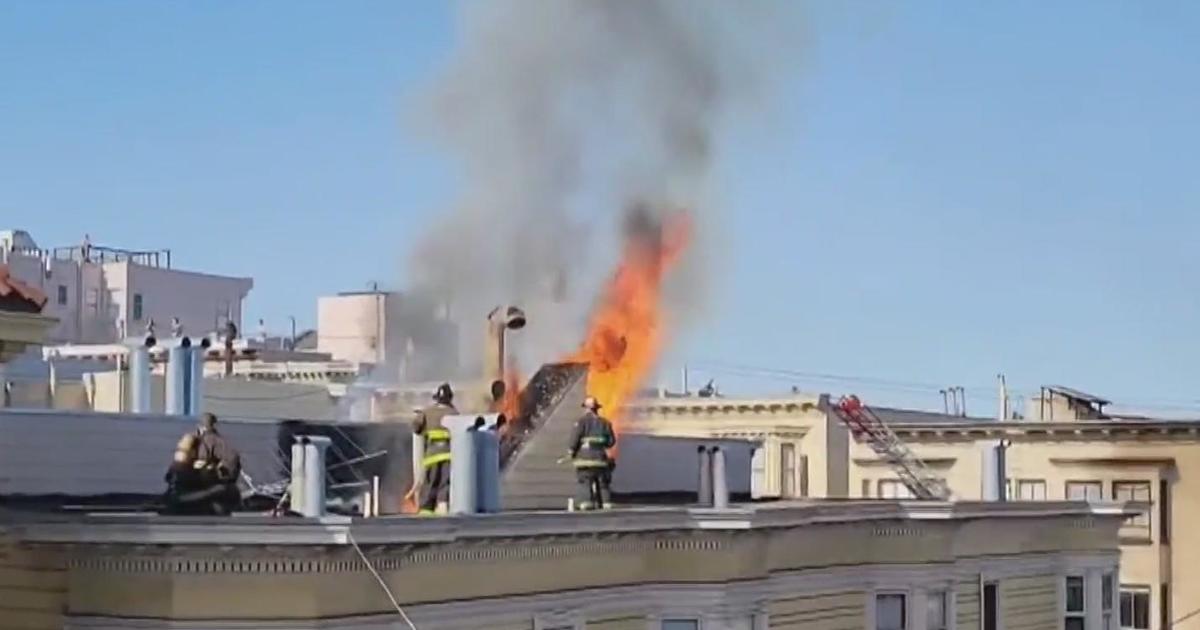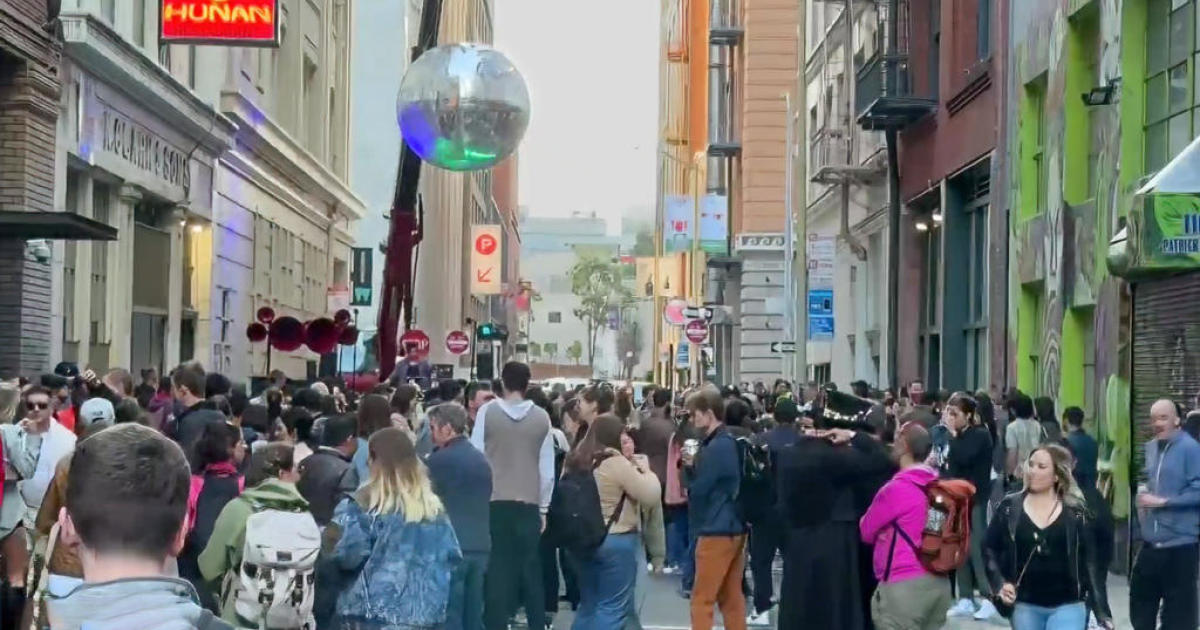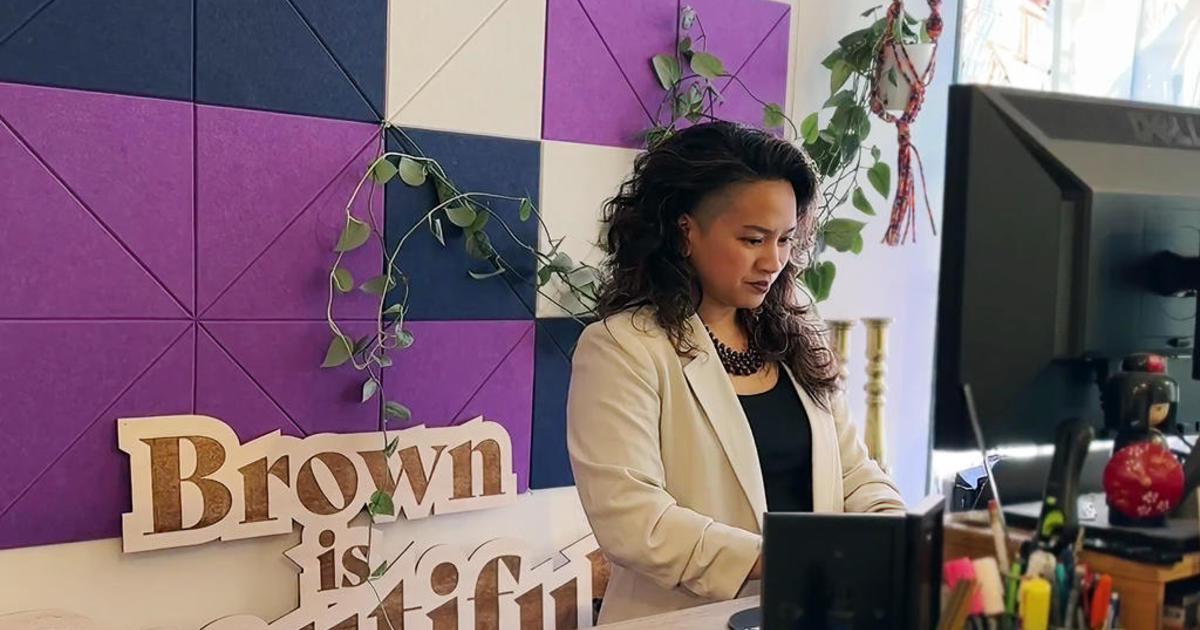'COVID-Phobia' Harming Skittish Patients Needing Care, Health Care Industry As A Whole
By Len Kiese and Molly McCrea
SAN FRANCISCO (KPIX 5) -- The COVID-19 pandemic is wreaking havoc on other aspects of Californians' health; as we socially distance, too many are medically distancing from health care – harming their health as well as the state's health care industry.
Some statistics from a variety of reports tell the story. Since the pandemic began, California childhood vaccination rates have plunged 40%, while 75% of patients have canceled or delayed important medical checkups. Meanwhile, some 35 to 40% of those suffering symptoms of heart attacks or strokes are not getting to the emergency room in time.
In addition, California's hospitals could see up to $15 billion net loss in revenues in 2020. All of this adds up to trouble for patients and the health care industry.
Tracy Prose and Arnaldo Dallera are two patients both from the North Bay who needed care in the middle of the pandemic. Earlier this year, Tracy suffered a stroke.
"Her speech was quite garbled. And that was an alarm immediately for me," recalled her husband Jeff.
Time was of the essence. The sooner a stroke victim gets to the emergency room and hospital, the higher the chances of a full recovery. Tracy and Jeff understood she needed to get to the hospital, but it was unnerving. An ambulance was called, but because of the COVID crisis Tracy had to travel alone since no family members were allowed.
About the same time, Dallera was contemplating if he should really get heart surgery. He had a leaky heart valve and was feeling palpitation symptoms.
"He was having shortness of breath symptoms, and also his heart rate was beginning to rise - what we call atrial fibrillation," said Interventional Cardiologist Dr. Vaikom Mahadevan from the University of California, San Francisco.
Atrial fibrillation can lead to blood clots, stroke, and heart failure. But Dallera was apprehensive about entering a hospital.
"It goes without saying that I was a little concerned about going to the hospital," said Dallera. "You hear people say, 'Oh don't go to the hospital, you're going to catch the virus.'"
That fear - known informally as COVIDphobia - is raising alarm among healthcare professionals
"Those of us in health care are now worried about the next epidemic: all the regular care that people haven't been getting since sheltering at home," said Dr. Kevin Grumbach, Professor and Chair of Family and Community Medicine at UCSF. "So we're worried about children who haven't come in for their immunizations who are at risk for measles. We are worried about people with high blood pressure who haven't come in to get their blood pressure checked regularly who are at risk for stroke. We're worried about if babies are going to be born as healthy as they can if women haven't been coming in for their prenatal care."
Unlike Prose and Dallera, people are staying away from hospitals at their own peril, even those who are actually experiencing heart attacks or strokes.
"There's 25% to 30% reduction in stroke and heart attack admissions to the hospital," said Dr. Wade Smith, Division Chief for Neurovascular Services at UCSF and an expert in stroke and neurocritical care.
Harvard University Economics Professor David Cutler told KPIX 5 that it is troubling patients are not seeking critical emergency care. But he also warned what might need life support is the health care industry. While it survived the last two recessions, Cutler says the industry may not survive the COVID-19 crisis intact.
"No crisis passes without some significant change," said Cutler. "So, there will be significant change here."
Cutler explained how the health care industry depends on payments and elective procedures to stay afloat. With unemployment on the rise, people are losing their private-sector health plans, and enrolling in less-reimbursed public options. Add to that the precipitous drop in patient visits, and it adds up to real trouble.
"The revenues are falling enormously," said Cutler.
Those who end up getting help are thriving. Prose had a blood clot plucked from her brain and her surgeon told her that the procedure was a complete neurological success.
"He asked me at the end to hold up a couple of fingers on the paralyzed side and I could do that right away and I was super excited," recounted the wife and mother.
Dallera was persuaded to have the surgery thanks to his daughter, who is a doctor at UCSF, and provided him with the encouragement and the science to reassure him that the surgery would be safe.
His valve was fixed using a less invasive method by Dr. Mahadevan, a top specialist in interventional cardiology. Dallera spent the night in the hospital, and the next day, the medical staff performed another echocardiogram to confirm the surgery was a success. He is now on the mend and recommended that patients don't wait.
Across the Bay Area, hospitals, medical centers, and doctor's offices are all employing stringent new protocols to protect patients and staff. What's less clear is how to protect the largest sector of California's economy - the healthcare industry – from the pandemic.
Cutler offered some ideas. Telemedicine will play a more important role, but the staff may be more streamlined. A new source of consistent revenue will also be needed to keep hospitals, clinics, and other healthcare facilities healthy, including a shift from a fee-for-service payment system to a "regular payment per patient" over periods of time, which may provide a more stable funding source.



